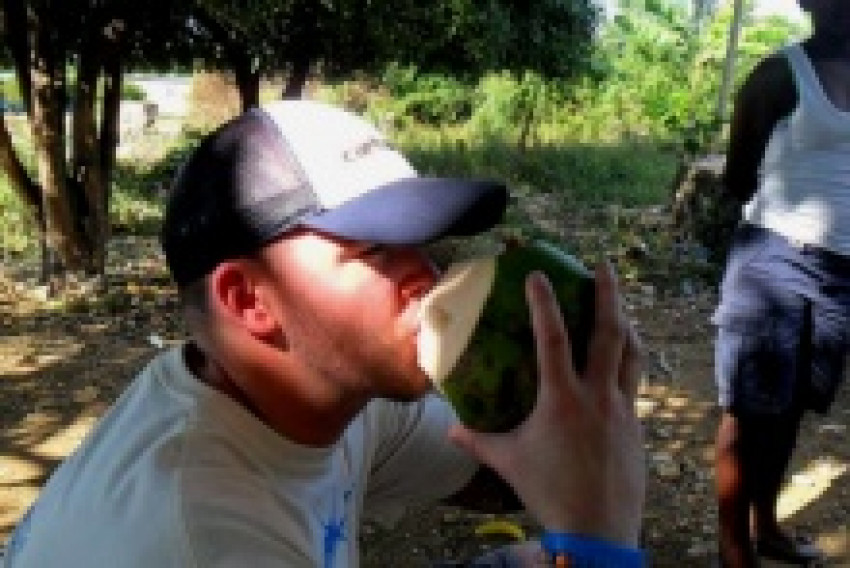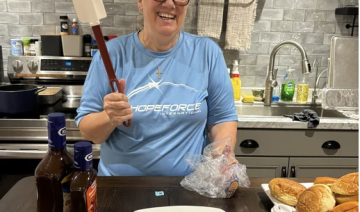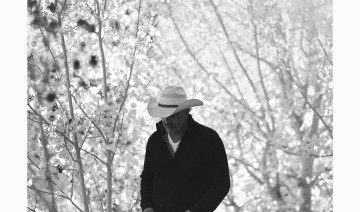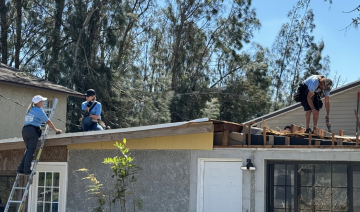
Life-changing experience in Haiti: Part 1
January 10, 2012
On their week-long deployment in December, Brad and his fellow Reservists experienced just how real poverty and destruction are for the people of Haiti. The team performed medical consultations, taught community health classes, and participated in the Christmas gift distribution for families in the Child Sponsorship Program. Following is Brad's story:
 Hundreds of people, most of them barefoot, mill through streets littered with trash and debris. The air is full of eager voices offering goods and services to passersby. People come and go from dilapidated buildings that seem to be on the verge of collapse. As water runs down the side of the road, some stop to wash their bodies or collect it in bottles. Buses so crowded that some people ride on top of them swerve in and out of bumper-to-bumper traffic.
Hundreds of people, most of them barefoot, mill through streets littered with trash and debris. The air is full of eager voices offering goods and services to passersby. People come and go from dilapidated buildings that seem to be on the verge of collapse. As water runs down the side of the road, some stop to wash their bodies or collect it in bottles. Buses so crowded that some people ride on top of them swerve in and out of bumper-to-bumper traffic.
Seeing Port-au-Prince for the first time nearly two years after Haiti was devastated by a brutal earthquake, Hope Force Reservist Brad Jones described the scene as unreal, something straight out of a movie. Their time was packed with cultural experiences, including attending an international church on their second day in Haiti.
"I was not sure what to expect because of the culture," Brad said. "There was a pretty diverse mixture of nationalities, but for the most part it was a Haitian crowd. One thing was certain though, Jesus is very much alive in Haiti. Even though they have been through so much over the past few years, they still honor and acknowledge Him."
 After church the team visited Delmas, where a large portion of the tent cities are located. "I was informed that the city is in much better condition now than two years ago, but to me it looked as if the earthquake had just hit a week ago," Brad said. "So many collapsed buildings still remain in rubble where they fell, simply because the people do not have the resources to clean it up. Even the Presidential Palace has not been cleaned up. Imagine if 9/11 happened, and two years later the World Trade Center debris still lay in the same spot as it fell."
After church the team visited Delmas, where a large portion of the tent cities are located. "I was informed that the city is in much better condition now than two years ago, but to me it looked as if the earthquake had just hit a week ago," Brad said. "So many collapsed buildings still remain in rubble where they fell, simply because the people do not have the resources to clean it up. Even the Presidential Palace has not been cleaned up. Imagine if 9/11 happened, and two years later the World Trade Center debris still lay in the same spot as it fell."
On their third day the team took the 30-mile journey to Sous Savanne, which takes nearly two hours because of traffic. Once they had arrived, the team led a teaching about nutrition, water purification, and signs of scabies. After that, the team went to paint the house of Joseph, a community leader who recently lost his wife in a car accident. Joseph was not at home when they arrived, but his four children were there to greet the team.
"Hope Force gave each child a family photograph which included their deceased mother. You could see the genuine happiness in their faces just from seeing the picture. One of the younger children smiled and said, 'Momma, Momma!' It is a moment that I?ll never forget. I?m sure that Hope Force changed their lives forever by giving them so much, but they will never know that they changed my life as well that day."
 The next day, Brad got his first chance to teach about health and hygiene in a local school. "I was really looking forward to that day," Brad said. "I was curious to see how their school operated and how the children would respond to us being there." Since the original school building had been destroyed in the earthquake, classes were held in a makeshift tent with three classrooms separated from each other by chalkboards. Brad noted that the children looked clean and professional in their school uniforms. "The kids seemed to enjoy the teaching, and they asked a lot of questions and were very responsive when I asked them questions," Brad said.
The next day, Brad got his first chance to teach about health and hygiene in a local school. "I was really looking forward to that day," Brad said. "I was curious to see how their school operated and how the children would respond to us being there." Since the original school building had been destroyed in the earthquake, classes were held in a makeshift tent with three classrooms separated from each other by chalkboards. Brad noted that the children looked clean and professional in their school uniforms. "The kids seemed to enjoy the teaching, and they asked a lot of questions and were very responsive when I asked them questions," Brad said.
On day five Brad got to do what he had been looking forward to for the whole trip --putting his medical expertise as a paramedic to use.





